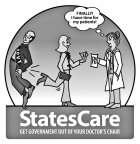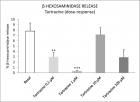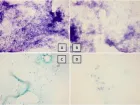Abstract
Research Article
Dengue Epidemic during COVID-19 Pandemic: Clinical and Molecular Characterization – A Study from Western Rajasthan
Praveen Kumar Rathore, Eshank Gupta and Prabhu Prakash
Published: 01 April, 2025 | Volume 9 - Issue 1 | Pages: 005-009
The concurrent emergence of dengue fever and the COVID-19 pandemic posed significant challenges to India’s healthcare system, particularly in Western Rajasthan, a region characterized by its arid climate and unique socio-demographic conditions. This study aimed to investigate the clinical and molecular characteristics of dengue during the COVID-19 pandemic, focusing on trends, diagnostic challenges, and serotype distribution.
Conducted at Dr. S.N. Medical College, Jodhpur, in 2021, the study included 550 dengue-positive patients confirmed via rapid diagnostic tests and further analyzed using Dengue NS1 antigen and IgM antibody ELISA. Molecular characterization was performed using RT-PCR for serotyping.
The results revealed a male predominance (72.36%) and a higher incidence in the 21–30-year age group (39.09%). Urban areas accounted for 67.73% of cases, with significant NS1 and IgM positivity (p = 0.042 and p = 0.004, respectively). Most cases (86.91%) were managed outpatient, though IgM positivity was significantly higher among hospitalized patients (19.19%, p < 0.001), indicating severe or prolonged infections. Platelet counts were above 100,000/mm³ in 86.91% of cases, with only 0.37% showing critically low counts (< 20,000/mm³). Seasonal analysis showed a peak in October (n = 325), correlating with post-monsoon vector breeding. Serotyping identified DENV2 as the dominant strain (97.42%), associated with severe dengue manifestations, including Dengue Haemorrhagic Fever (DHF).
The study highlights the dual burden of dengue and COVID-19, emphasizing the need for enhanced vector control, improved diagnostic strategies and public health interventions during overlapping outbreaks. The predominance of DENV2 underscores the importance of serotype-specific surveillance and preparedness to mitigate future dengue epidemics in the region.
Read Full Article HTML DOI: 10.29328/journal.ijcv.1001063 Cite this Article Read Full Article PDF
Keywords:
Dengue; COVID-19; Serotyping; DENV2; Western Rajasthan; Seasonal variation; Thrombocytopenia
References
- National Vector Borne Disease Control Programme (NVBDCP), India. Dengue Cases and Deaths in India. 2021. Available from: http://nvbdcp.gov.in
- World Health Organization (WHO). Dengue and severe dengue. 2021. Available from: https://www.who.int/news-room/fact-sheets/detail/dengue-and-severe-dengue
- Indian Council of Medical Research (ICMR). Challenges in managing dengue during the COVID-19 pandemic in India. Indian J Med Res. 2021;153(5):567-572.
- Sharma R, Singh P, Verma K. Coexistence of dengue and COVID-19: A diagnostic challenge in resource-limited settings. J Vector Borne Dis. 2022;59(3):221-228.
- Ministry of Health and Family Welfare (MoHFW), Government of India. Integrated Disease Surveillance Programme (IDSP) report on vector-borne diseases. 2021.
- Biswas S, Chattopadhyay S. Molecular characterization of dengue virus serotypes during the COVID-19 pandemic: Emerging challenges. Virol J. 2021;18(1):112.
- Premazzi Papa M, Mendoza-Torres E, Sun P, Encinales L, Goulet J, Defang G, et al. Dengue NS1 antibodies are associated with clearance of viral nonstructural protein-1. J Infect Dis. 2024;230(6):e1226–e1234. doi: 10.1093/infdis/jiae299.
- Huang CH, Lin YT, Wang SF. Co-detection of NS1 and IgM in dengue patients: Implications for diagnostic timing. J Clin Virol. 2021;145:104923.
- Almiron WR, Colombo VE, Estallo EL. Gender-specific exposure to Aedes aegypti mosquitoes: A meta-analysis of epidemiological studies in dengue-endemic regions. Trop Med Health. 2022;50(1):23.
- Li J. Outdoor exposure dynamics and dengue risk in urban youth: A longitudinal cohort study. Emerg Infect Dis. 2023;29(4):712–720.
- Stoddard ST. Dengue vector productivity in urban built environments: A meta-analysis of Aedes aegypti breeding patterns. Emerg Infect Dis. 2023;29(5):923–931.
- Lowe R. Combined effects of COVID-19 and dengue outbreaks: A modeling study. PLoS Negl Trop Dis. 2021;15(6):e0009435.
- Bowman LR. Community-based dengue prevention programs in Latin America: A systematic review of effectiveness and implementation factors. Am J Trop Med Hyg. 2022;106(3):845-854.
- Chakraborty T. Impact of COVID-19 on Dengue Epidemiology: A Review of Current Evidence and Future Implications. Trop Med Int Health. 2022;27(3):245-258.
- Colon-Gonzalez FJ. Delayed dengue epidemic patterns following monsoon rains in Southeast Asia. Nat Clim Chang. 2023;13(2):178–185.
- Potts JA. Immunoglobulin M as a predictor of clinical outcomes in dengue virus infection. J Infect Dis. 2021;224(12):2131–2139.
- Katzelnick LC, Ben-Shachar R, Koelle K. Dengue serotype interactions and population immunity dynamics: A modeling study. Sci Transl Med. 2023;15(684):eabq3511.
- Roy SK, Bhattacharjee S. Dengue virus: Epidemiology, biology and disease aetiology. Can J Microbiol. 2021 Oct;67(10):687-702.
Figures:
Similar Articles
-
The Psychology of the Common Cold and Influenza: Implications for COVID-19Andrew P Smith*. The Psychology of the Common Cold and Influenza: Implications for COVID-19. . 2020 doi: 10.29328/journal.ijcv.1001011; 4: 027-031
-
Yemen is free of COVID-19Hussein O Kadi*. Yemen is free of COVID-19. . 2020 doi: 10.29328/journal.ijcv.1001012; 4: 032-033
-
Exploring pathophysiology of COVID-19 infection: Faux espoir and dormant therapeutic optionsVinod Nikhra*. Exploring pathophysiology of COVID-19 infection: Faux espoir and dormant therapeutic options. . 2020 doi: 10.29328/journal.ijcv.1001013; 4: 034-040
-
COVID-19: Targeting the cytokine storm via cholinergic anti-inflammatory (Pyridostigmine)Ahmed H Osman*. COVID-19: Targeting the cytokine storm via cholinergic anti-inflammatory (Pyridostigmine). . 2020 doi: 10.29328/journal.ijcv.1001014; 4: 041-046
-
Identifying patterns in COVID-19: Morbidity, recovery and the aftermathVinod Nikhra*. Identifying patterns in COVID-19: Morbidity, recovery and the aftermath. . 2020 doi: 10.29328/journal.ijcv.1001016; 4: 056-064
-
Role of nanotechnology in diagnosing and treating COVID-19 during the PandemicAbdul Baset*,Abdul Waris,Muhammad Ali,Atta Ullah Khan,Asmat Ali. Role of nanotechnology in diagnosing and treating COVID-19 during the Pandemic. . 2020 doi: 10.29328/journal.ijcv.1001017; 4: 065-070
-
Inhaled statins to combat COVID-19 – prophylactic and treatment approachArchana P Iyer*,Maryam A Al-Ghamdi. Inhaled statins to combat COVID-19 – prophylactic and treatment approach. . 2020 doi: 10.29328/journal.ijcv.1001020; 4: 079-080
-
A Comprehensive review on genomic diversity and epidemiology of COVID-19Zeshan Haider Raza*,Muhammad Ahmed Ihsan,Sahrish Khan,Haroon Zafar,Tayyaba Rehman. A Comprehensive review on genomic diversity and epidemiology of COVID-19. . 2020 doi: 10.29328/journal.ijcv.1001021; 4: 081-095
-
The expected second wave of COVID-19Madiha Asghar*,Misbahud Din. The expected second wave of COVID-19. . 2020 doi: 10.29328/journal.ijcv.1001024; 4: 109-110
-
COVID-19 pandemic, recurrent outbreaks and prospects for assimilation of hCoV-19 into the human genomeVinod Nikhra*. COVID-19 pandemic, recurrent outbreaks and prospects for assimilation of hCoV-19 into the human genome. . 2020 doi: 10.29328/journal.ijcv.1001025; 4: 111-115
Recently Viewed
-
Clinical and Histopathological Mismatch: A Case Report of Acral FibromyxomaMonica Mishra*,Kailas Mulsange,Gunvanti Rathod,Deepthi Konda. Clinical and Histopathological Mismatch: A Case Report of Acral Fibromyxoma. Arch Pathol Clin Res. 2025: doi: 10.29328/journal.apcr.1001045; 9: 005-007
-
Unconventional powder method is a useful technique to determine the latent fingerprint impressionsHarshita Niranjan,Shweta Rai,Kapil Raikwar,Chanchal Kamle,Rakesh Mia*. Unconventional powder method is a useful technique to determine the latent fingerprint impressions. J Forensic Sci Res. 2022: doi: 10.29328/journal.jfsr.1001035; 6: 045-048
-
Doppler Evaluation of Renal Vessels in Pediatric Patients with Relapse and Remission in Different Categories of Nephrotic SyndromeAmit Nandan Dhar Dwivedi*, Srishti Sharma, OP Mishra, Girish Singh. Doppler Evaluation of Renal Vessels in Pediatric Patients with Relapse and Remission in Different Categories of Nephrotic Syndrome. J Clini Nephrol. 2023: doi: 10.29328/journal.jcn.1001112; 7: 067-072
-
Atlantoaxial subluxation in the pediatric patient: Case series and literature reviewCatherine A Mazzola*,Catherine Christie,Isabel A Snee,Hamail Iqbal. Atlantoaxial subluxation in the pediatric patient: Case series and literature review. J Neurosci Neurol Disord. 2020: doi: 10.29328/journal.jnnd.1001037; 4: 069-074
-
Intelligent Design of Ecological Furniture in Risk Areas based on Artificial SimulationTorres del Salto Rommy Adelfa*, Bryan Alfonso Colorado Pástor*. Intelligent Design of Ecological Furniture in Risk Areas based on Artificial Simulation. Arch Surg Clin Res. 2024: doi: 10.29328/journal.ascr.1001083; 8: 062-068
Most Viewed
-
Evaluation of Biostimulants Based on Recovered Protein Hydrolysates from Animal By-products as Plant Growth EnhancersH Pérez-Aguilar*, M Lacruz-Asaro, F Arán-Ais. Evaluation of Biostimulants Based on Recovered Protein Hydrolysates from Animal By-products as Plant Growth Enhancers. J Plant Sci Phytopathol. 2023 doi: 10.29328/journal.jpsp.1001104; 7: 042-047
-
Sinonasal Myxoma Extending into the Orbit in a 4-Year Old: A Case PresentationJulian A Purrinos*, Ramzi Younis. Sinonasal Myxoma Extending into the Orbit in a 4-Year Old: A Case Presentation. Arch Case Rep. 2024 doi: 10.29328/journal.acr.1001099; 8: 075-077
-
Feasibility study of magnetic sensing for detecting single-neuron action potentialsDenis Tonini,Kai Wu,Renata Saha,Jian-Ping Wang*. Feasibility study of magnetic sensing for detecting single-neuron action potentials. Ann Biomed Sci Eng. 2022 doi: 10.29328/journal.abse.1001018; 6: 019-029
-
Pediatric Dysgerminoma: Unveiling a Rare Ovarian TumorFaten Limaiem*, Khalil Saffar, Ahmed Halouani. Pediatric Dysgerminoma: Unveiling a Rare Ovarian Tumor. Arch Case Rep. 2024 doi: 10.29328/journal.acr.1001087; 8: 010-013
-
Physical activity can change the physiological and psychological circumstances during COVID-19 pandemic: A narrative reviewKhashayar Maroufi*. Physical activity can change the physiological and psychological circumstances during COVID-19 pandemic: A narrative review. J Sports Med Ther. 2021 doi: 10.29328/journal.jsmt.1001051; 6: 001-007

HSPI: We're glad you're here. Please click "create a new Query" if you are a new visitor to our website and need further information from us.
If you are already a member of our network and need to keep track of any developments regarding a question you have already submitted, click "take me to my Query."

















































































































































